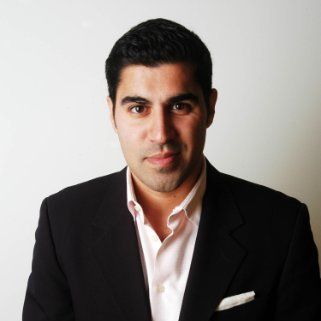Mapping the networks in Asia with Parag Khanna

Parag Khanna, CEO & founder of Factotum, global strategist and TED speaker joined us for a fascinating conversation about mapping the different networks from logistics to infrastructure in Asia. Drawing his background in international relations with his experience in the US military and work in the foreign affairs advisory council for Barack Obama’s presidential campaign in 2008, he offered a combined perspective with technology & geopolitical mapping and explained how the dynamics of infrastructure building and network connectivity across cities and people from China, India to ASEAN to create the next Asia century.
Here are the interesting notes and links to the discussion (with timestamps included):
- Parag Khanna (@paragkhanna, LinkedIn, personal site)
- Career of Parag Khanna
- Recent reflections on the Singapore 50th anniversary celebrations. [0:40]
- Introduction: Parag Khanna is a global strategist, world traveling and also author of several interesting books: Hybrid Reality: Thriving in the Emerging Human-Technology Civilization (2012).
- How did you first get started in International Relations? The story of how the fall of Berlin Wall inspired him to get into international relations. His brief stint in serving the US military. [1:45]
- With your experience serving U.S. National Intelligence Council’s Global Trends 2030 program and foreign policy advisory group to the Barack Obama for President campaign, what are your learnings from these role and how do you look at international relations as a whole? [3:54]
- Incorporating technology as part of his ideas in the book “Hybrid Reality” into geopolitics and his thoughts on China’s new 5 years plan. [6:30]
- He have been a globetrotter from UAE to Germany to US to Singapore, why did he move to Asia? [8:06]
- CEO and co-founder of Factotum
- What does Factotum do and how they add value to companies out there in Asia? [10:10]
- Case studies with General Electric’s Look Ahead.
- Mapping the Asia landscape in different networks (logistics, infrastructure, Internet) and connectivities (trade routes)
- What is your perspective on mapping different networks (infrastructure, Internet, logistics, economics and geopolitical) in the landscape of Asia? [13:30]
- Is Asia highly fragmented and how does economies and networks operate in such a highly fragmented and diverse landscape (cultural and linguistic fragmentation)? [14:48]
- How does trade routes and other forms of connectivity link up the technology and manufacturing clusters in the region? Case studies mentioned: Business Process Outsourcing in Philippines and special economic zones from China to India [16:50]
- What are the most interesting trends and innovations he has seen in Asia that could become a challenge to US innovation economy? Parag’s insight: It’s not a binary view of East vs West based on competition between economies. In fact, the economies benefit by creating jobs in one and import/export in the other and in fact, the companies in these economies compete but the economies benefitted with that mutual interaction. [18:09]
- The formation of “circuits” in the world. [21:00]
- China [22:09]
- Based on his interesting analysis in your TED talk “Mapping the future of countries” on how China exports it culture out there and also an interesting perspective using the trade routes in Asia, we asked Parag how trade routes built connectivity for China to interact with the rest of the world.
- The implications of the Asia Infrastructure Investment Bank. [23:01]
- With China’s recent stock market challenges and given that they have spent the last twenty building the infrastructure (that also provide companies like Baidu, Alibaba and Tencent to shape the future), how is the massive urbanization campaign changing China? [24:40] (Reference: China’s Infrastructure Alliances)
- India
- India is now making the same move in constructing 100 new cities from mixed-use developments to special economic zones, and also they have private cities (run by corporations) as well, how do you see their economies will shaping in the next decade? [26:06]
- Singapore in the next 50 years & the evolution of ASEAN
- Singapore is an anomaly in Asia, with a city growing to USD55K GDP per capita (comparing to Japan – USD39K, US – USD 54K), why does every city out in the world want to mimic Singapore’s success? The culture of “strategic paranoia” in Singapore government to innovate and continue to make Singapore succeed. [29:59]
- Given that it has just celebrated its 50th birthday, what are the challenges that you see this city state for the next 50 years and how does the city stay relevant against the tides of globalisation? [30:20]
- How does ASEAN (Southeast Asia) play an important role for the Asian Century? Discussion on ASEAN cities & the economic integration of ASEAN for the upcoming treaty. Why one should not compare Eurozone and ASEAN as they evolve from different initial conditions. [31:30]
- Mapping the Future
- In his TED talk in 2009: “Mapping the future of countries“, he explained the root causes of border conflicts worldwide and proposed simple yet cunning solutions to the geopolitical issues. How are the ideas from that TED talk provide a view in giving alternative ideas to resolve border conflicts in Asia? [32:50]
- What is the main thesis of his upcoming book focusing on the mapping the world using different networks (information, geopolitical, logistics)? [34:00]
Podcast Information:
The show is hosted by Bernard Leong (@bleongcw) and are sponsored by Ideal Workspace(Twitter, Facebook and LinkedIn) and Linkcious (and check out their other product, Chiibi).



